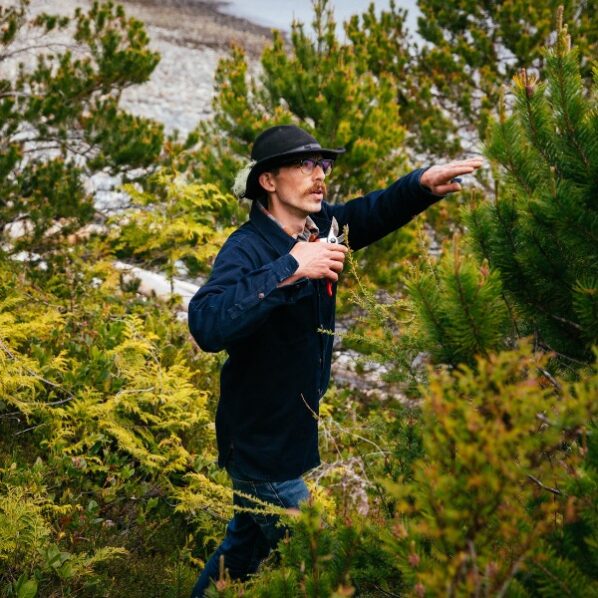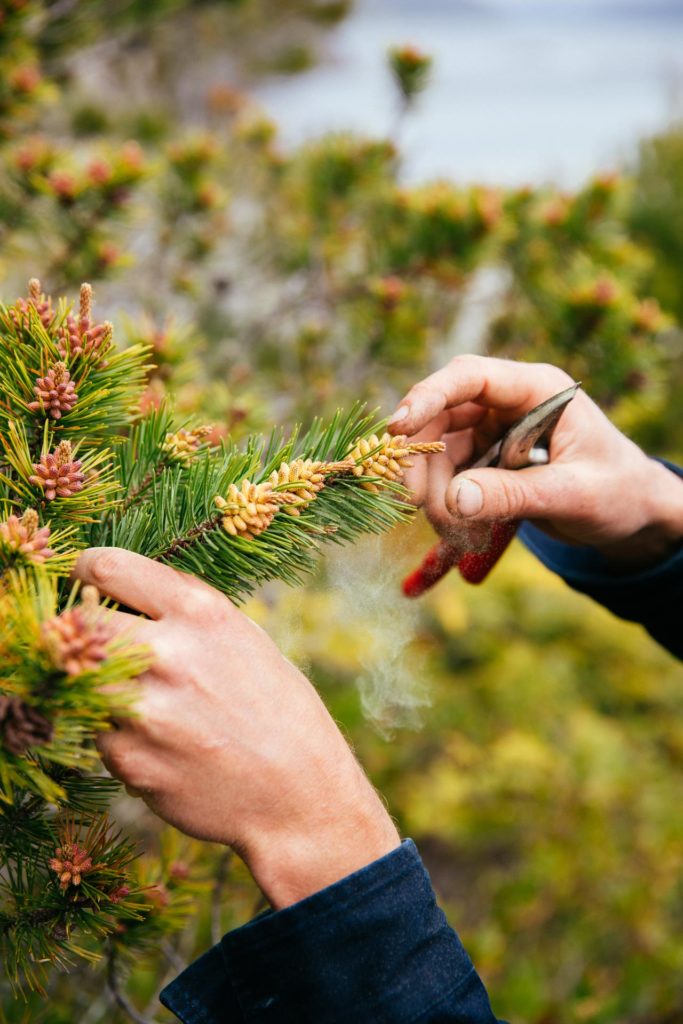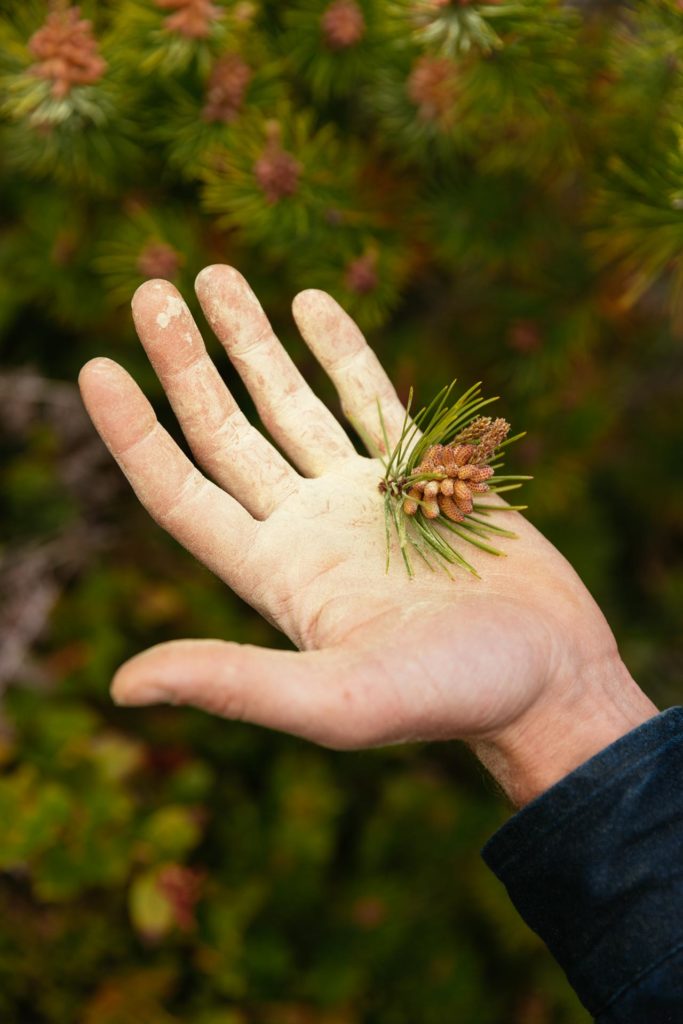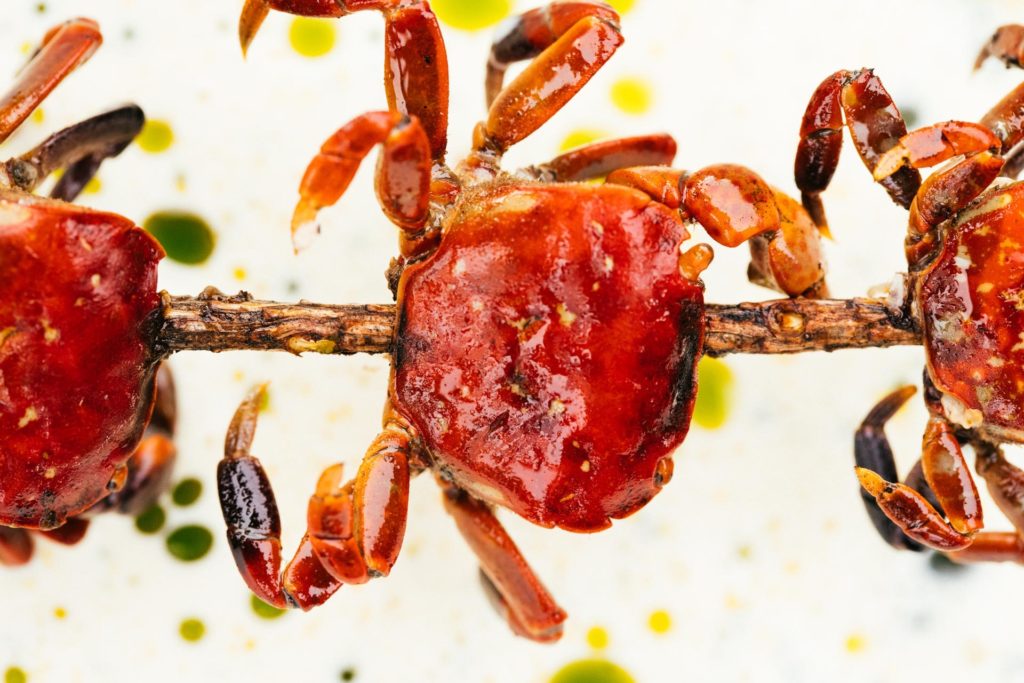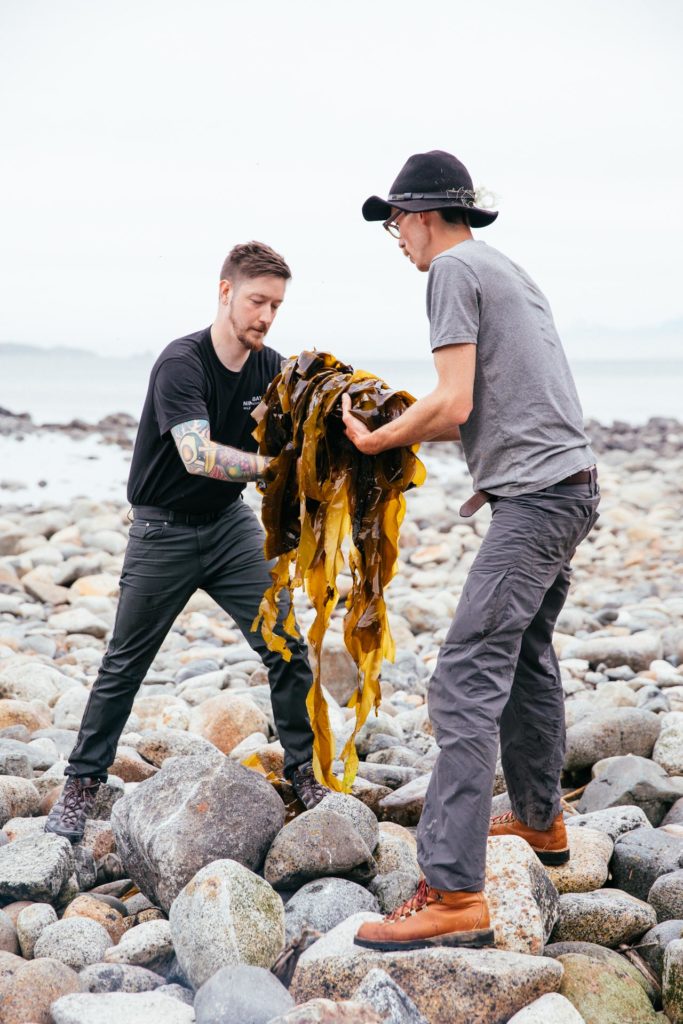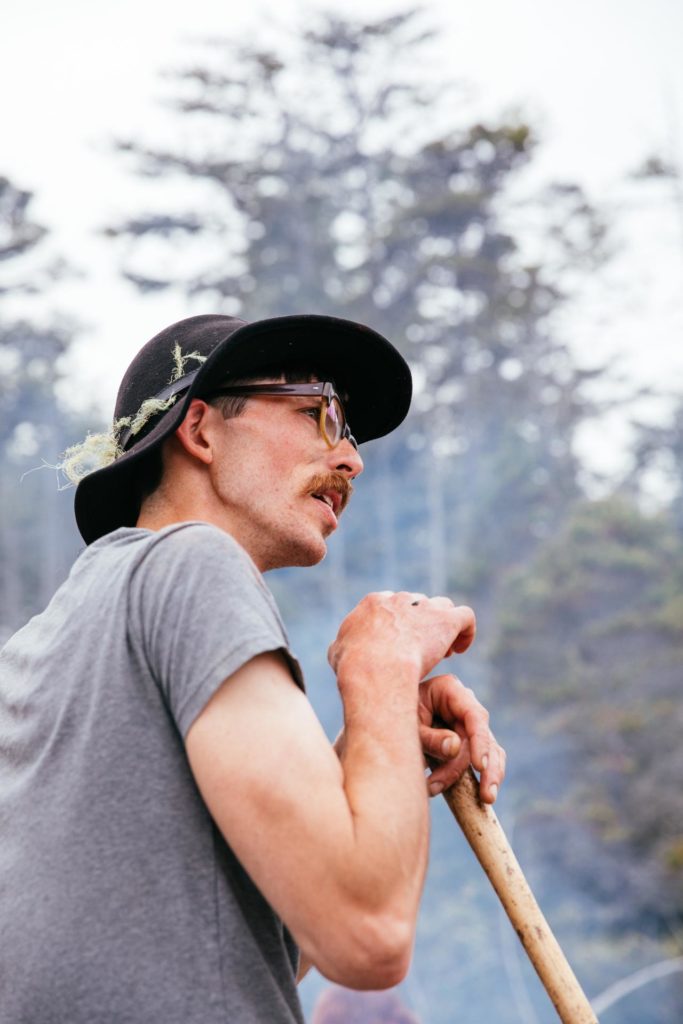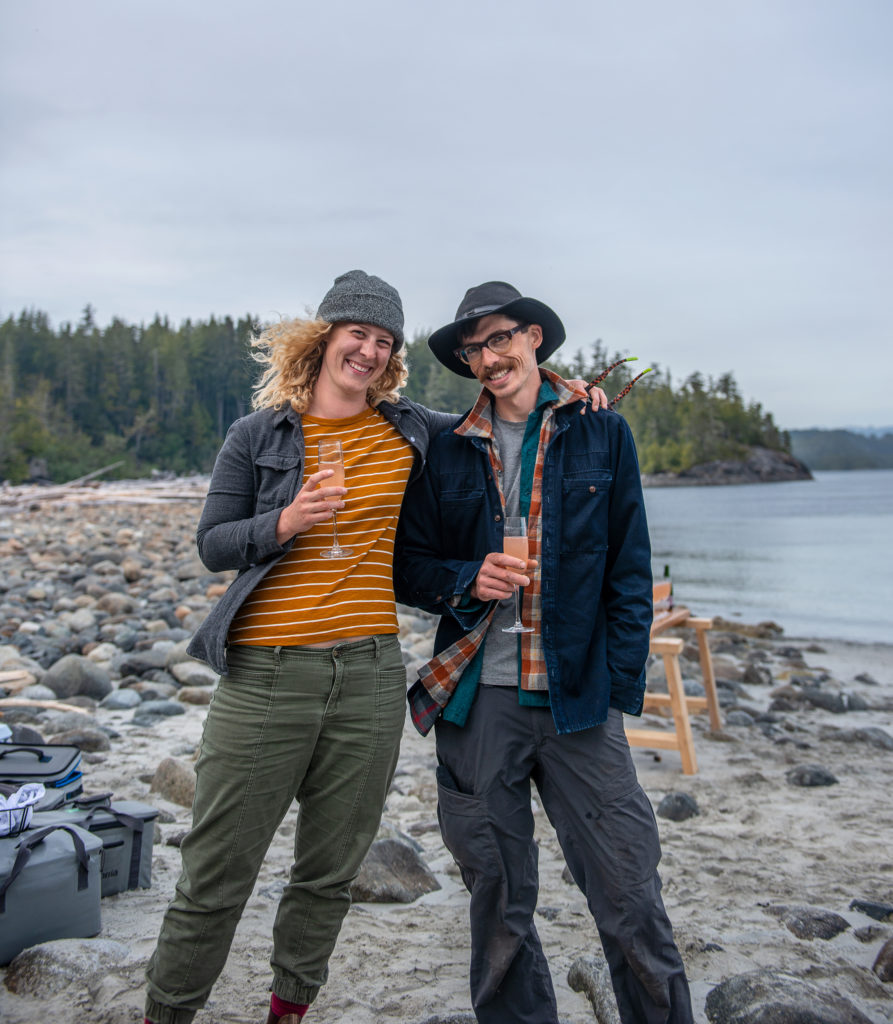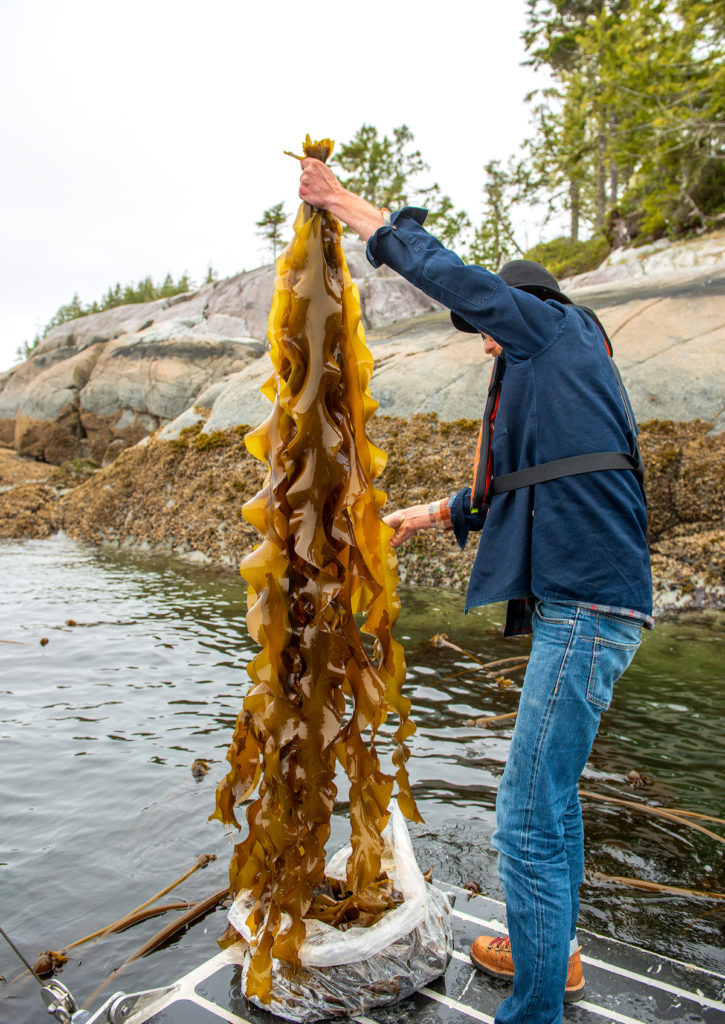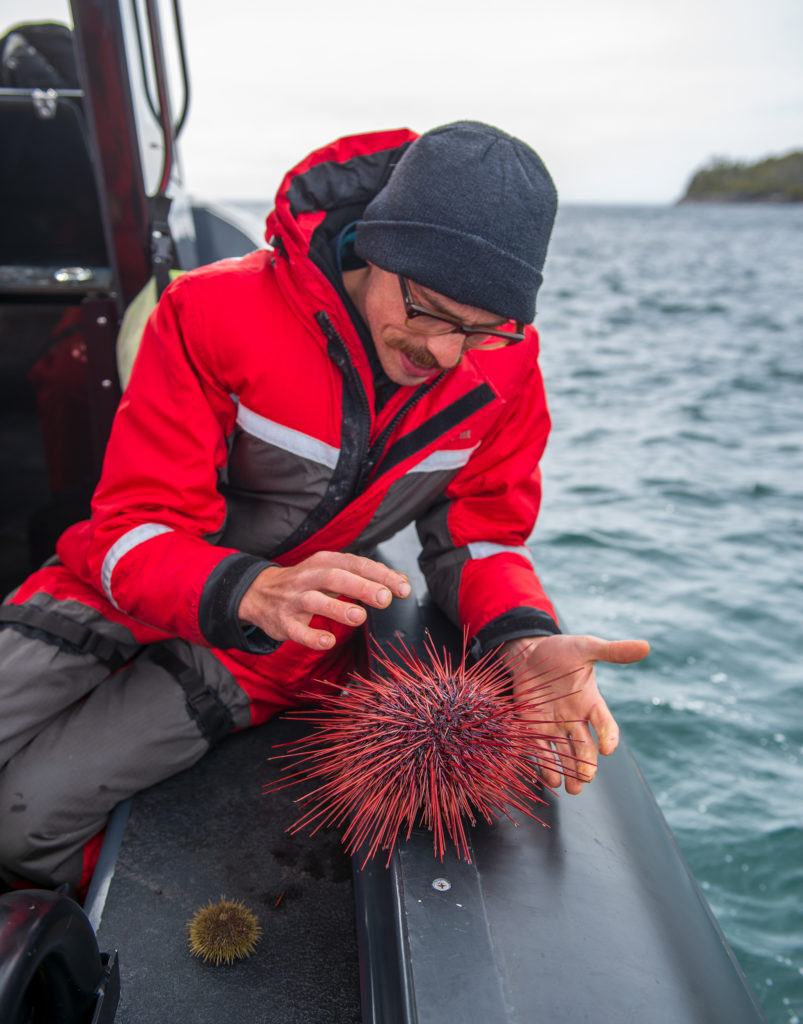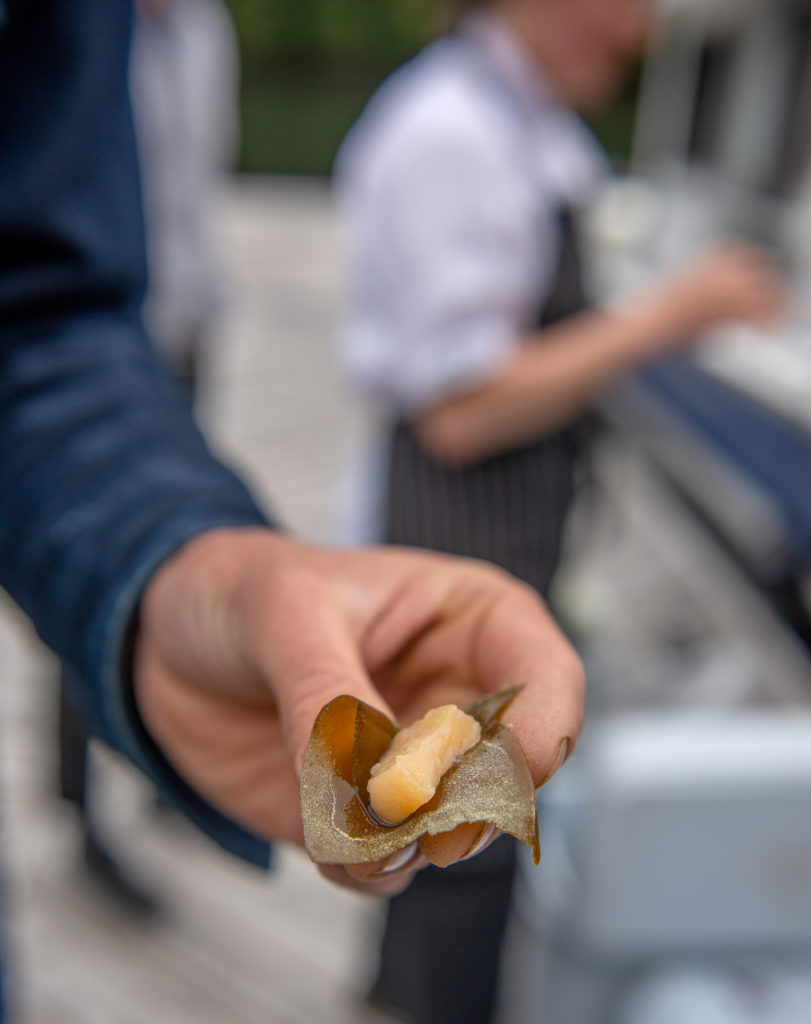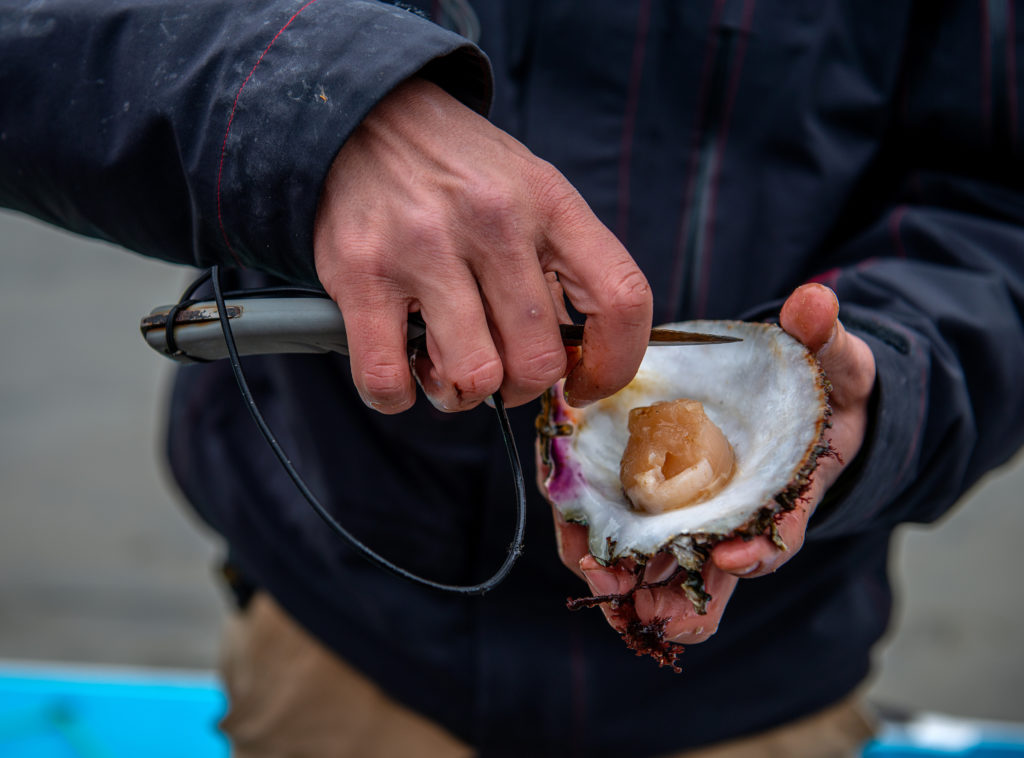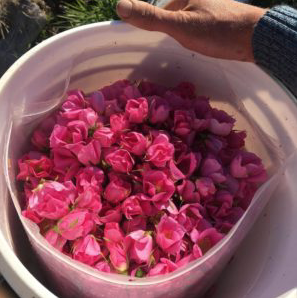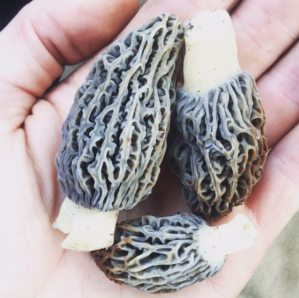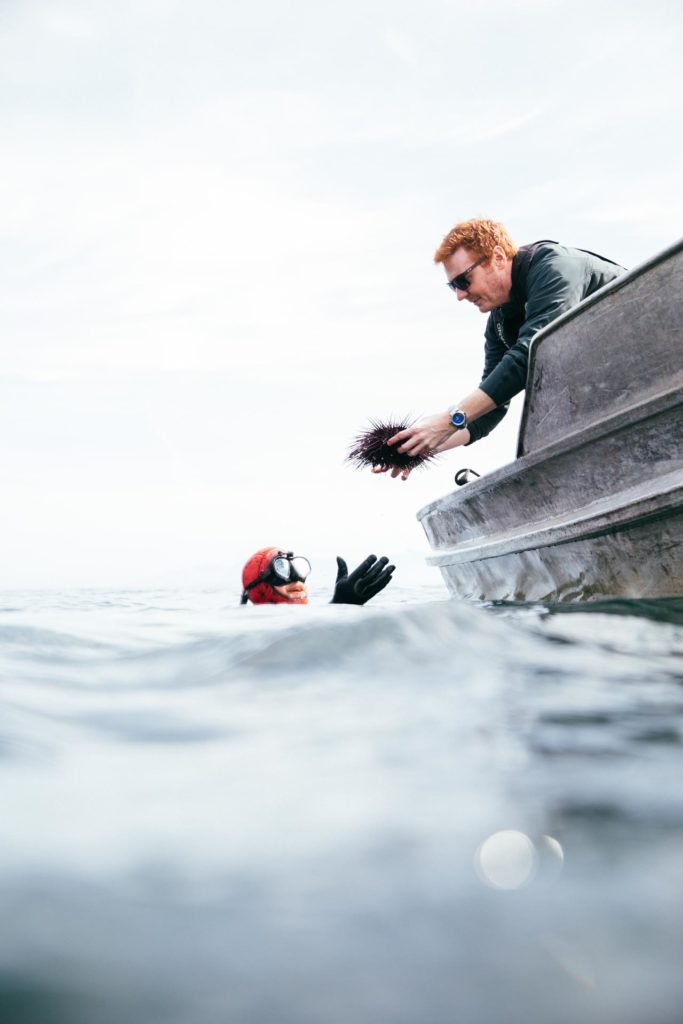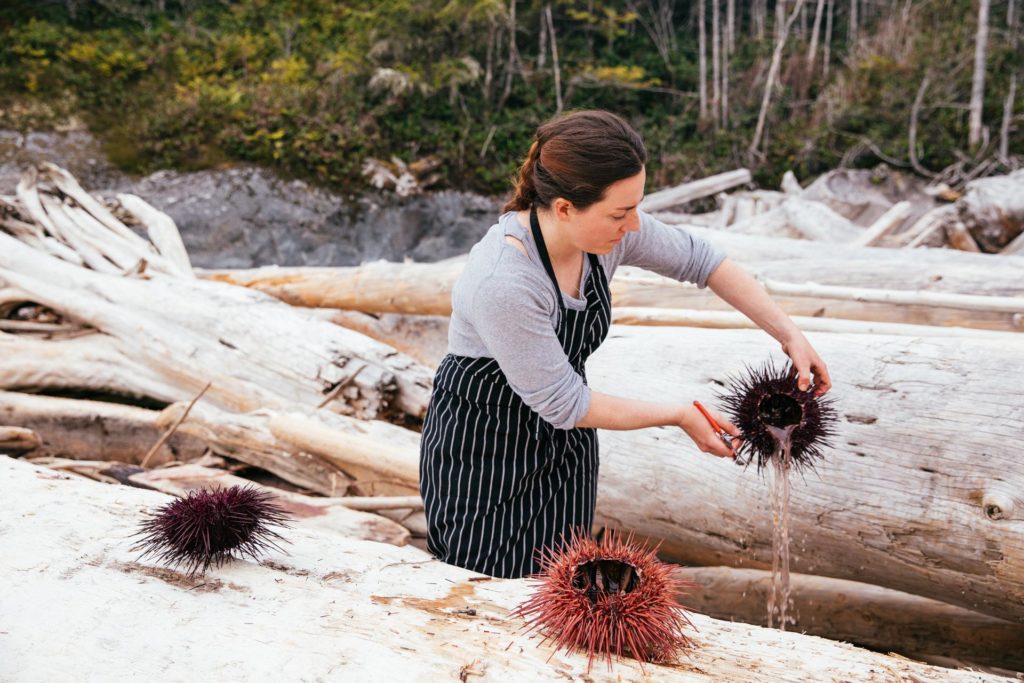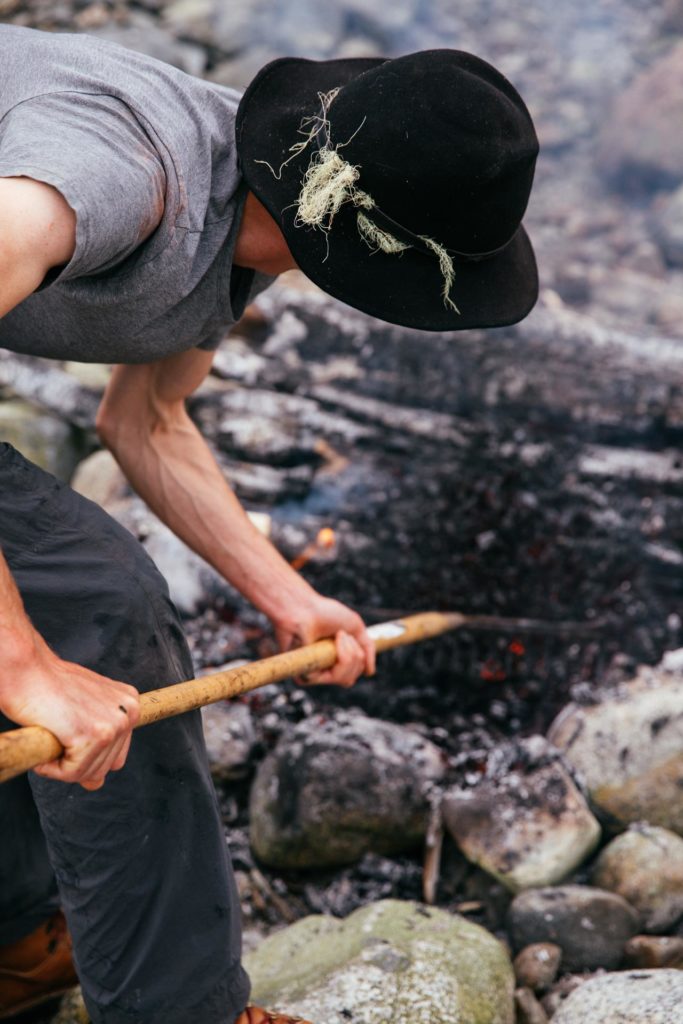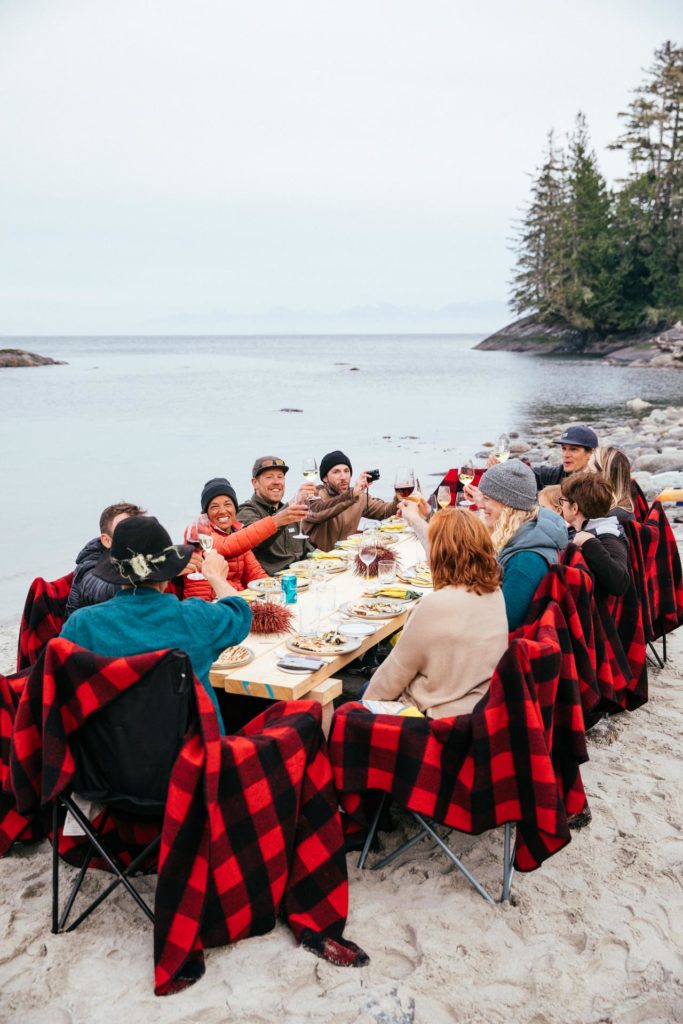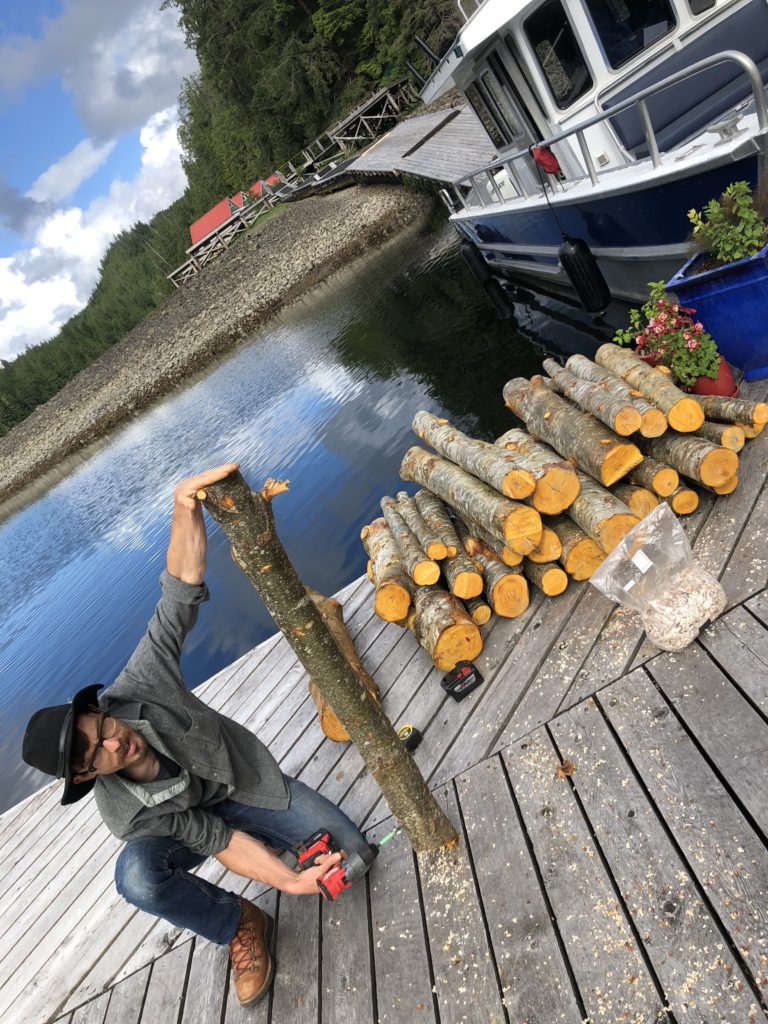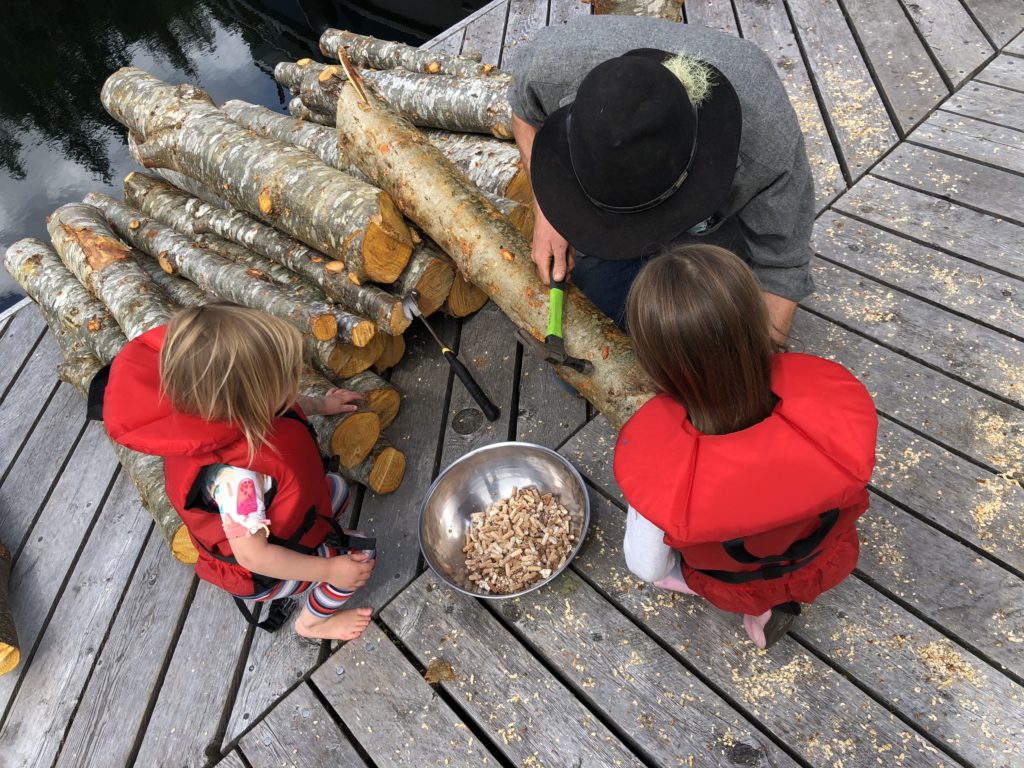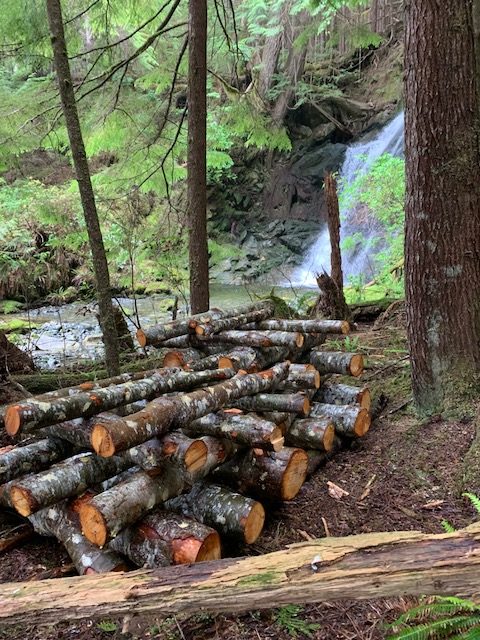When asked about his most memorable experiences from his time at Nimmo Bay, Alexander replies, “pulling fresh bull kelp from the ocean and using it to steam and inground bake a lingcod, the taste of fried shore crabs and the delicious pine pollen discoveries along the rocky bluffs.”
Alexander McNaughton is an experienced forager, educator and tour guide, with a wealth of knowledge about wild edibles. Raised in the Comox Valley, on Vancouver Island, Alexander spent his childhood exploring the wilderness of his hometown’s backyard and helping with the family’s garden. He studied Geography and Urban Agriculture at Simon Fraser University, while also managing various food-based programs and coordinating community food events.
From food planning, community gardening, guided hikes, foraging tours and more, Alexander has developed strong relationships with the local area and its growers and purveyors. Alexander supplies ingredients to local restaurants and markets, where he has become well known for his curated selection of locally grown, unique, high-quality produce. In 2017, Alexander and his sweetheart, Mackenzie, moved to Powell River, on the northern Sunshine Coast of southwestern British Columbia, after purchasing an 11-acre property where they have been hard at work, devoutly transforming the land into an organic farm.
Alexander enjoys sharing his passion and knowledge of foraging, local foods and culinary exploration with friends, family and clients. When asked what he loves most about what he does, he replies, “I get to live my dream. Work feels like play most days. And, the deliciousness … I eat pretty well.”
Executive Chef David Hassell and our kitchen team work with Alexander regularly, ordering beautifully farmed and thoughtfully foraged ingredients. This season, some of the wild foraged ingredients have included: Nootka rose, ground blackberry, huckleberry, reindeer lichen, morels, lobster mushroom and sweet gale.
Alexander and Mackenzie visited Nimmo Bay in May, along with Dawn Postnikoff and Danika McDowell of Edible Vancouver Island, and then again in June, educating and inspiring our team while getting a sense of what the culinary program entails. Connecting people to place through food was the focus. Alexander marvelled at “the incredible pristine landscape with lots of wild food foraging opportunities,” noting that “there is enough wild food to go around for the bears, the whales and for us.”
Educating, inspiring and foraging with our team, Alexander also helped us to set up a mushroom farm!
Step 1: Drill holes in alder wood logs
Step 2: Mushroom log inoculation ~ plug holes with spores, cap with beeswax
Step 3. Set-up the mushroom farm by the waterfall and wait for them to grow. We should be looking for our first fruit next spring!
Mushroom spores planted: blue, pink and grey oyster, chicken of the woods and shiitake.
Please Note: Education is key when it comes to wild edibles and sustainable harvesting practices, as Alexander shared with us. When foraging, please remember to always do so wisely, responsibly, and respectfully.
